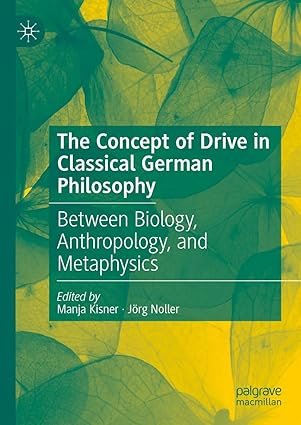The Concept of Drive in Classical German Philosophy: Between Biology, Anthropology, and Metaphysics
Delve into a groundbreaking interdisciplinary examination with The Concept of Drive in Classical German Philosophy: Between Biology, Anthropology, and Metaphysics, a meticulously curated 1st edition (2022) edited by Manja Kisner and Jörg Noller and published by Palgrave Macmillan. Now available exclusively at Books Hub PK, this volume is essential for scholars, philosophy students, and researchers interested in German Idealism, philosophy of biology, intellectual history, and ethics.
Why This Volume Matters
This compelling collection brings together fourteen original essays that trace the evolution of the philosophical concept of drive (Trieb) around 1800. It offers a rich historical and systematic overview of how drive emerged in disciplines such as biology, anthropology, and psychology, and how it later became a foundational concept in classical German philosophy—including Kant, Fichte, Schelling, and Hegel.
Contributors analyze early drive theories from thinkers such as Leibniz, Reimarus, and Blumenbach, before moving into the idealist debate through Kant’s Trieb and Triebfeder and continuing via Fichte, Schiller, Goethe, Novalis, Reinhold, Schelling, and Schopenhauer. This volume bridges the gap between the natural sciences and metaphysical inquiry, showing how drive functions as an internal force in living organisms and a vehicle for human freedom and ethical consciousness.
What's Inside – Table of Contents
-
Historical sources of drive in Leibniz’s appetition and Blumenbach’s Bildungstrieb
-
Kant’s aesthetic and epistemological accounts of drive
-
Fichte and Schiller on motivation, morality, and aesthetics
-
Schelling’s concept of drive as cognitive faculty and Hegel's systematic extension in metaphysics

